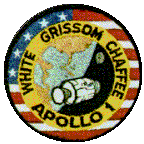I think you hit the nail on the head Richie. The Sixties was a very exciting time & all sorts of new things were happening, not only in space. Technology was advancing more rapidly than at any time before or since. I can remember when Sputnik, the first artificial satellite, was successfully launched (in 1957 when I was 14 years old) & listening to the beeps on the radio as it passed within range. Top of the charts on both sides of the Atlantic in 1962 was an instrumental named Telstar, by British group the Tornados, released soon after the first-ever live transatlantic TV transmission via satellite. It would have been difficult for any young person brought up on the exploits of Flash Gordon & Dan Dare not to be caught up in all this. It was like science fiction coming true & something I'd never dreamed of seeing in my lifetime. However, the military implications were obvious to anyone with the slightest imagination. If the USSR could put a man into orbit what else might they be capable of?
When the Space Race was in full flow circumstances were very different to what they are now. It was vitally important to the Western world's very survival that we (mainly represented by the US) kept abreast, if not ahead, of the USSR in military technology. That included ballistic missiles & space itself. At least, that's what we were were told & we believed it. Peace negotiations had broken down again & the Berlin Wall was built in August 1961. A physical symbol of the Cold War & how bad East/West relations had become. Intercontinental ballistic missiles with nuclear warheads were permanently aimed at strategic locations all over the world, some obviously being aimed at London - not far from where I'm sitting now. (It's quite possible that some still are.) We were told we would get a maximum 4 minutes warning of a nuclear attack for whatever use that might be. Not only did nuclear war appear to be a very real possibility but the USSR seemed to have the advantage.
After narrowly winning the 1960 Presidential election JFK had (somewhat rashly I thought) publicly promised the American people that they could & would put a man on the Moon before the end of the decade. The 'New Frontier' as he put it, was like something straight out of Star Trek although the first episodes of that series would not appear until 1966.
The Soviet Union was a clear leader in the pursuit of dominating Space. Since the launching of Sputnik in 1957 the United States became an active rival in the Space Race. On April 12, 1961, the Russians achieved the first human orbit, made by cosmonaut, Yuri Gagarin. On May 25, 1961, JFK announced the new American plan to put a man on the moon. He promised that the United States would achieve this before the end of the decade, which they did July 20, 1969. It was an important announcement where NASA and the American Space Industry gained planetary financial support. Finally on Feb. 20, 1962, the United States achieved its first human orbit from John Glenn's four hour mission.
The man was so charming & charismatic that people wanted to believe him. I admired him myself & thought he must have been pretty certain of his facts, although I'm not so convinced of that now. It was more than likely a huge gamble but I was never under any doubt that this was a military project & it was natural that the pioneer astronauts would be military test pilots. It was also generally accepted that this was likely to be highly dangerous & some of those astronauts would quite possibly lose their lives in the attempt.
I recently discovered that the JFK Library released a tape recording of a White House meeting in 1962 in which the space programme was discussed. This extract seems to confirm what I have always thought. That, however it might have been presented to the public, this was politically motivated right from the beginning with mainly military objectives. I'm cynical enough to believe that this is still the case & that no government in the world would be prepared to spend that amount of effort & resources on purely scientific research.
United Press International reports that, according to White House tapes released by the Kennedy Library archives, President John F. Kennedy clashed with NASA's top officials over his desire to gain political points by landing a man on the moon before the Soviet Union ("Tapes: JFK pushed for lunar landing", 23 August 2001). According to UPI's transcription, Kennedy made the following comments during a White House meeting over spending for the space program on Nov. 21, 1962 (about a month after the Cuban Missile Crisis):
"This is important for political reasons, international political reasons, and this is, whether we like it or not, in a sense, a race," Kennedy said. "Everything that we do ought to really be tied to getting onto the moon ahead of the Russians."
"I do think we ought to get it really clear that the policy ought to be that this is the top priority program of the agency and one ... of the top priorities of the United States government," Kennedy said. "Otherwise, we shouldn't be spending this kind of money because I'm not that interested in space."
PS.
http://www.space.com/news/kennedy_tapes_010822.html







